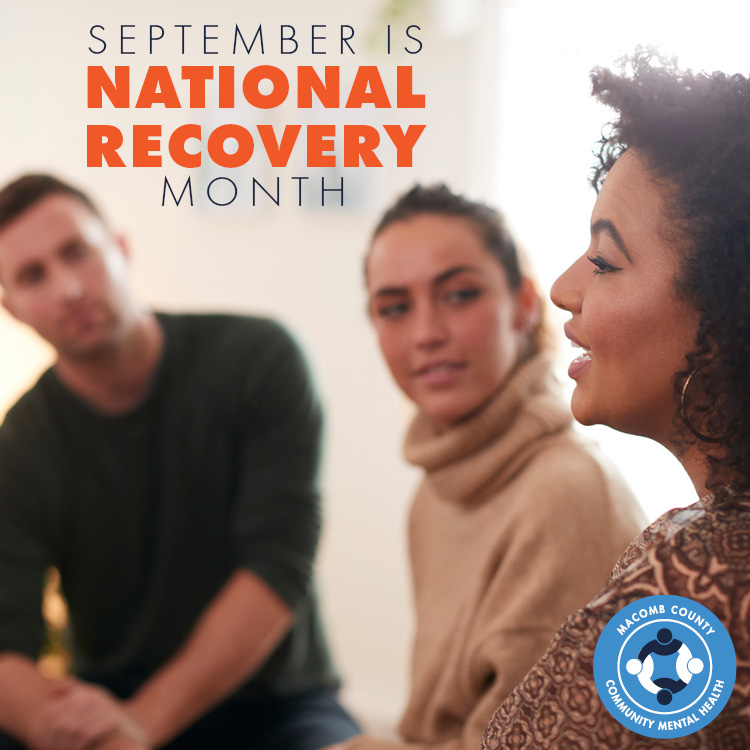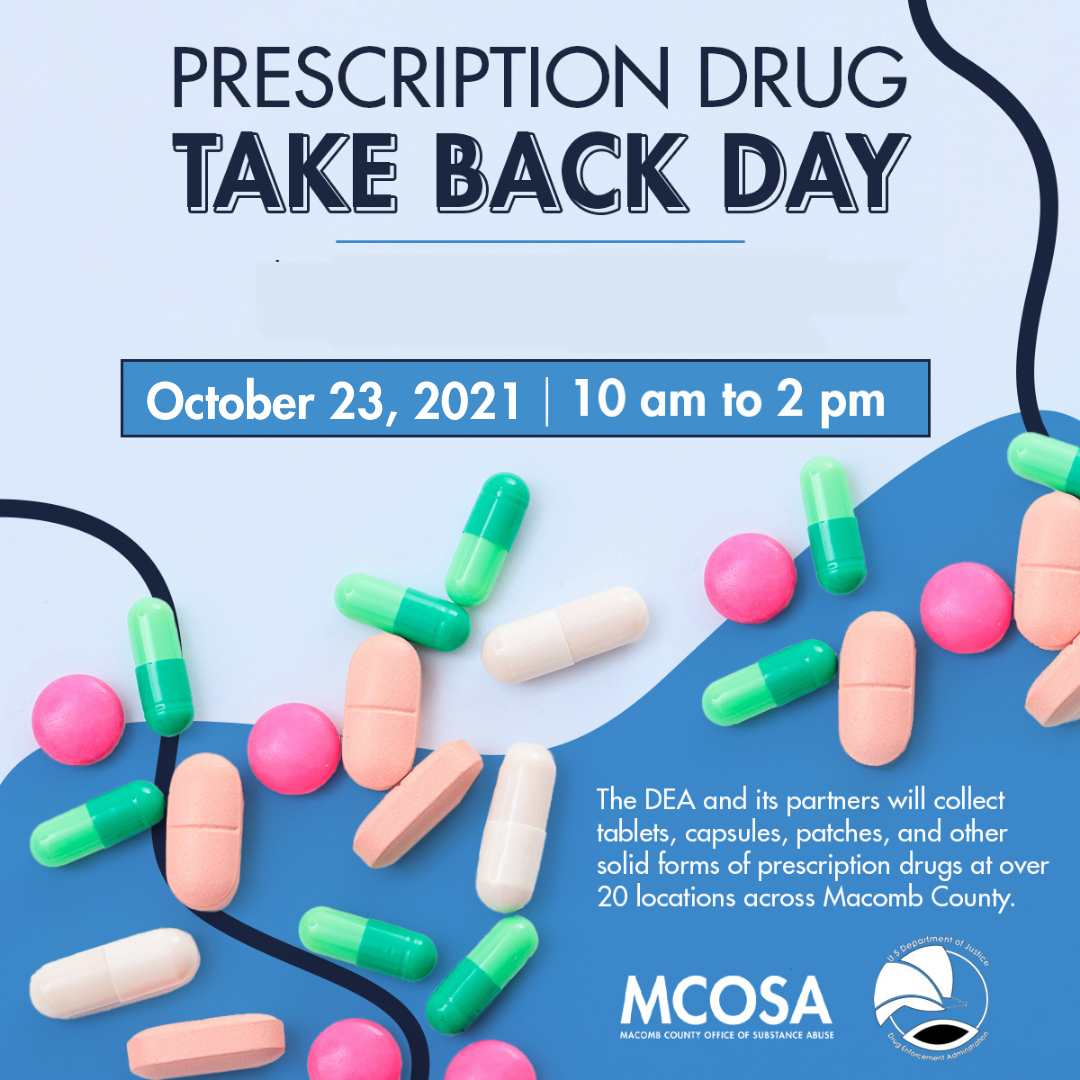
National Recovery Month:
September is National Recovery Month, which celebrates the achievements of those battling substance use disorder. Because behavioral health is essential to overall health, National Recovery Month recognizes the gains made through prevention, treatment, recovery and anti-stigma efforts, and acknowledges the successes of evidence-based treatment and recovery practices, the hard work and dedication of the recovery community, and service providers and community members that support them. (For more information about National Recovery Month, visit naadac.org/national-recovery-month).
On the local level, as part of Macomb County Community Mental Health (MCCMH), Macomb County Office of Substance Abuse (MCOSA) offers prevention, treatment, and recovery services, and is also responsible for other publicly funded substance use disorder programs. Battling the stigma associated with behavioral health is also important.
Prevention – Prevention services can keep children from developing a life-long substance use disorder and promote healthy communities. MCOSA supports many prevention efforts, including:
Parenting classes
Classroom education
Community Organizing through coalitions
Fetal Alcohol Education
Activities for people in recovery
Advocacy work and stigma reduction
Opioid Overdose Education and Naloxone Distribution
And other evidence-based programs
MCOSA-sponsored prevention services reached over twenty-four thousand people last year.
Treatment – Treatment services are available to Macomb County residents with a substance use disorder who have Medicaid, Healthy Michigan Plan, MI Child, MI Health Link, or are uninsured and meet income eligibility requirements. These services include:
Outpatient treatment
Intensive Outpatient treatment
Medication Assisted treatment
Withdrawal management
Residential treatment
Women’s Specialty Services
Opioid Health Home Services
Other specialty services
Recovery – Recovery takes time, patience and teamwork; there are a variety of resources that provide support for that part of the journey, including recovery housing to community center activities and support, and peer recovery coaching.
To learn more about these services, call MCCMH at 855-99-MCCMH (855-996-2264), or visit www.mccmh.net/substance-use-disorder.
Fighting STIGMA is also important. The way people think or talk about substance use disorder can stigmatize and even prevent people from seeking help. Reduce stigma by treating people affected by substance use disorder with respect, and educate others with misconceptions about substance use disorders and mental illnesses. To learn more, visit Opioid Resources – Reducing Stigma Campaign (michigan.gov)
Learn more about how stigma affected a woman’s treatment and recovery efforts, visit Stories of Stigma: Stephanie’s Story – CLOUD (opioidlibrary.org).
Although National Recovery Month is September, MCCMH and MSOSA support and celebrate recovery efforts and those who make them possible year round.



